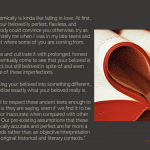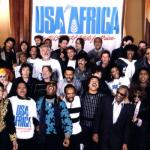A couple of reviews of my book Theology and Science Fiction have appeared recently. Jaime Wright of the University of Edinburgh writes in The Expository Times:
Reading Theology and Science Fiction one wonders if the term ‘theology’ was chosen over ‘religion’ merely because McGrath’s name is already attached to the edited work, Religion and Science Fiction. McGrath’s use of the term ‘theology’ is not as systematic, nor as God-centred, as one might expect. This is perhaps due to his desire to discuss multiple religions rather than one tradition; regardless, the terms ‘theologies’, ‘belief systems’, or ‘religion’ would have been more apt descriptors. While one should not open McGrath’s book to receive theological answers, it remains true to its goal of raising questions and inspiring engagement with religious and scientific ideas.
And Paul Fayter has a much longer review in Perspectives on Science and Christian Faith in which he writes:
That science fiction and theology intersect in many ways may surprise, but it shouldn’t. Both often express a sense of wonder, and even awe. Both seek self-understanding and awareness of our place in the cosmos. Both are fascinated with the Other and the New, with intimations of the sacred, the transcendent, the divine—with the Mystery beyond human
knowing and imagining. Both are curious about life and death, origins and endings, the deep past and far future. Both address changes and continuities in ideas, beliefs, values, and practices. Both address our hopes and fears, anxieties and dreams. When science fiction writers wrestle with moral questions, with the search for “forbidden knowledge” or the powerful possibilities and pitfalls of “playing God,” with utopias or dystopias, with vivid apocalypses or epic, multigenerational journeys, with demons or messiahs from the heavens, they signal a deep debt to the Bible as an ancient and continuing source of images, characters, plots, tropes, and themes for storytelling. I have long used my training in biblical exegesis in the analysis and interpretation of science fiction (and scientific) texts; this is but one reason why I found the background of the author of this brief but stimulating discussion so appropriate.
There are also some other great items related to the intersection of theology and science fiction that have appeared online recently. See for instance Ada Palmer’s recent article in which she writes:
The extra challenge this poses for writing about divine intervention—crafting our science fiction version of It’s a Wonderful Life—is that it can be remarkably difficult to communicate to a science fiction audience when you genuinely intend to depict a miracle, not an alien, not a space phenomenon, not sufficiently advanced technology, an actual miracle. The recent television series Battlestar Galactica (2004-2009) struggled with this enormously. Providential language was introduced as early as the opening credits, which warn “…and they have a Plan” (capital P), and as early as episode ten, “Hand of God,” the genius scientist character Gaius Baltar concludes that humanity’s improbable survival must be following a divine script, declaring: “I am an instrument of God.” Yet even as prophecies consistently came true and providential language saturated the series, a huge portion of viewers were well past the line, “I see angels,” before it occurred to them that the writers meant actual angels. Nor were viewers wrong to be uncertain about this, as the very similar series Babylon 5 (1993-1998) also included prophecies, and providential language, and things that looked like angels, but these all turned out to be the result of aliens, time travel, and genetic manipulation.














